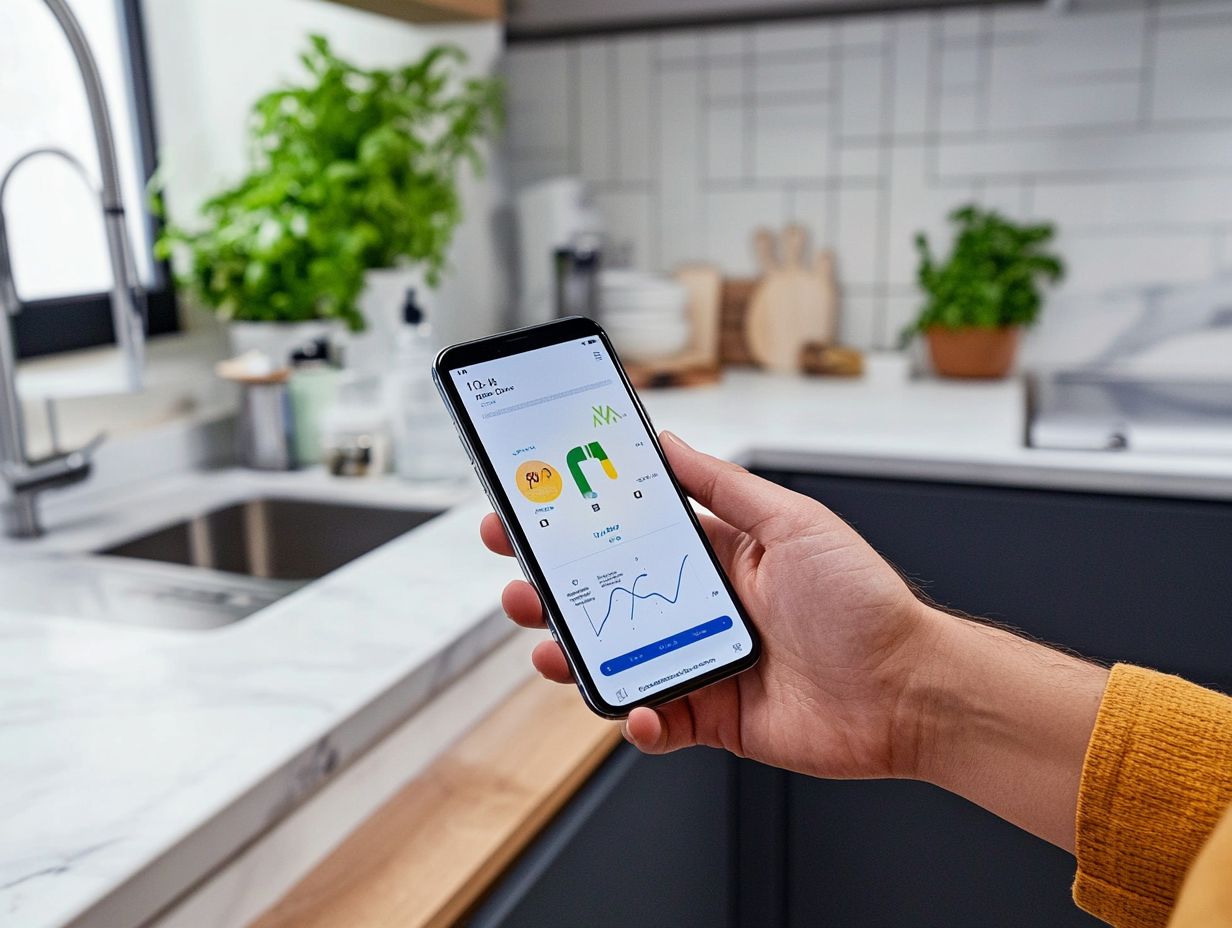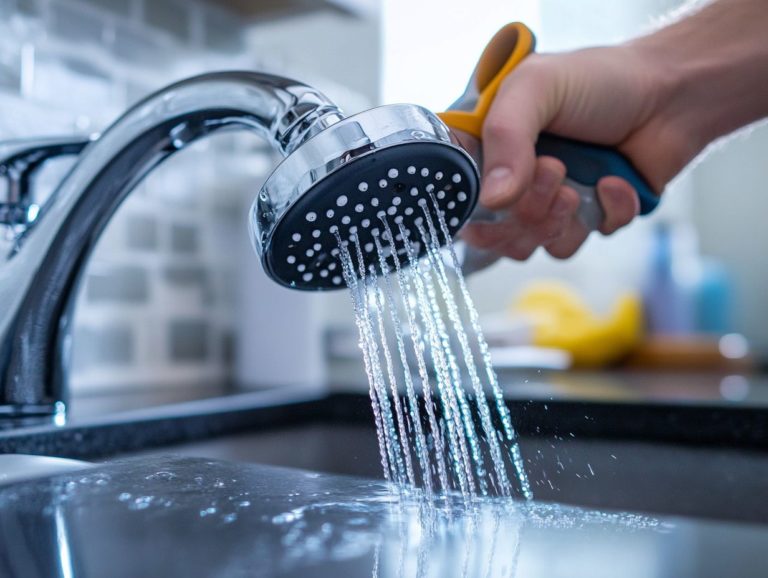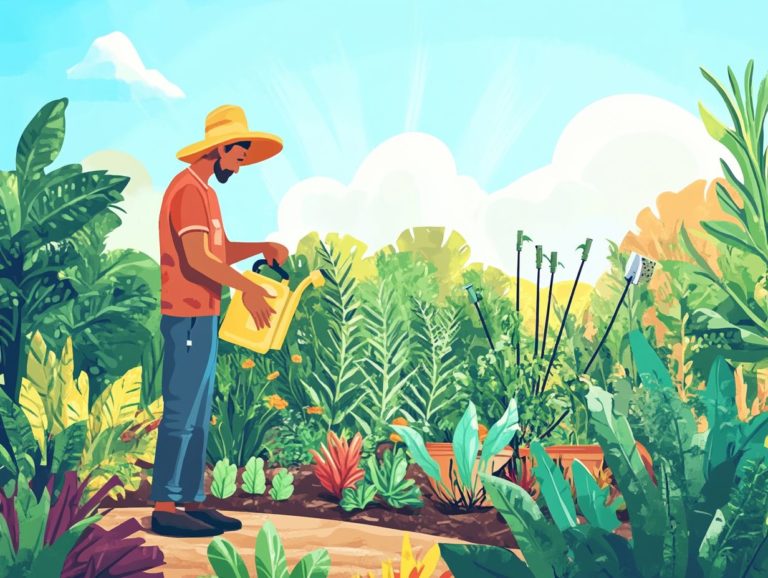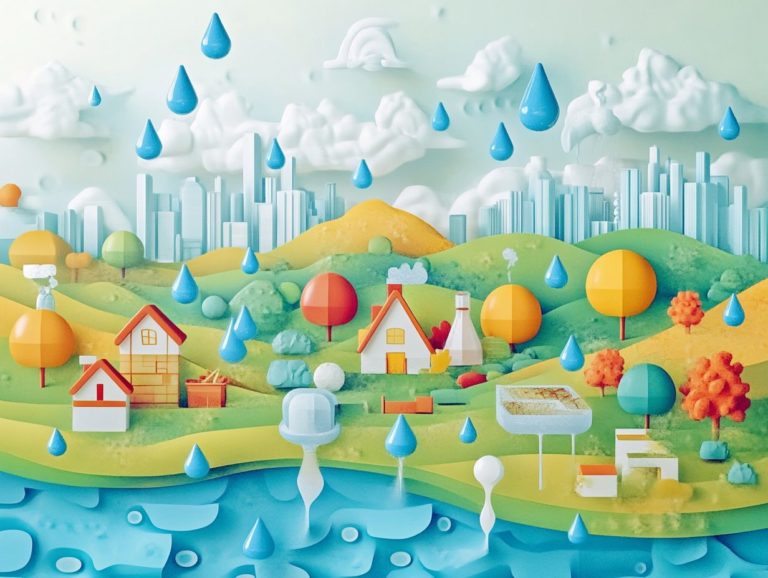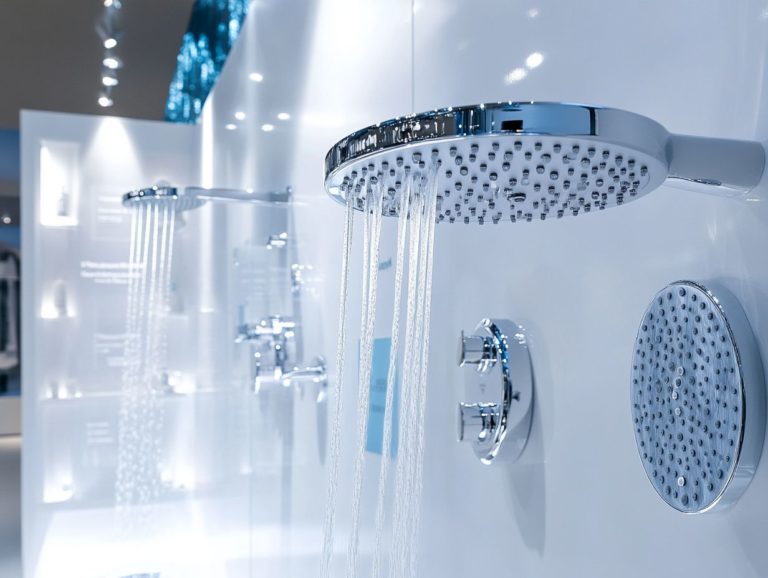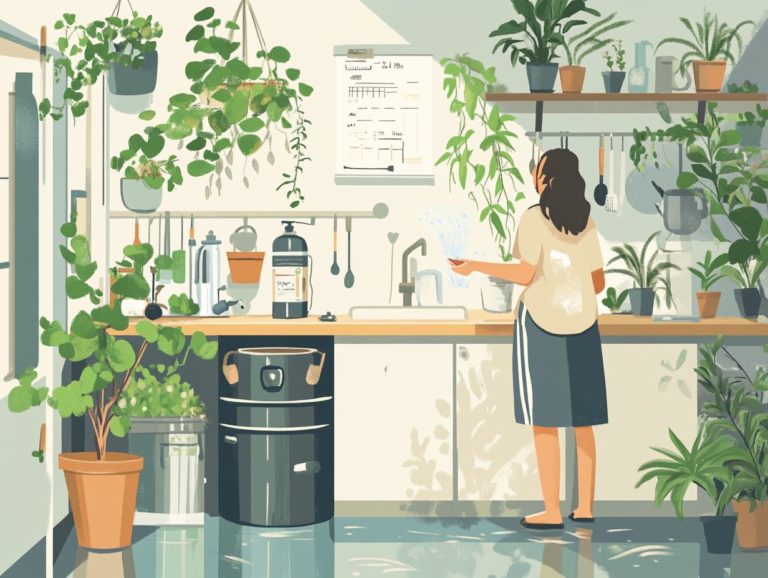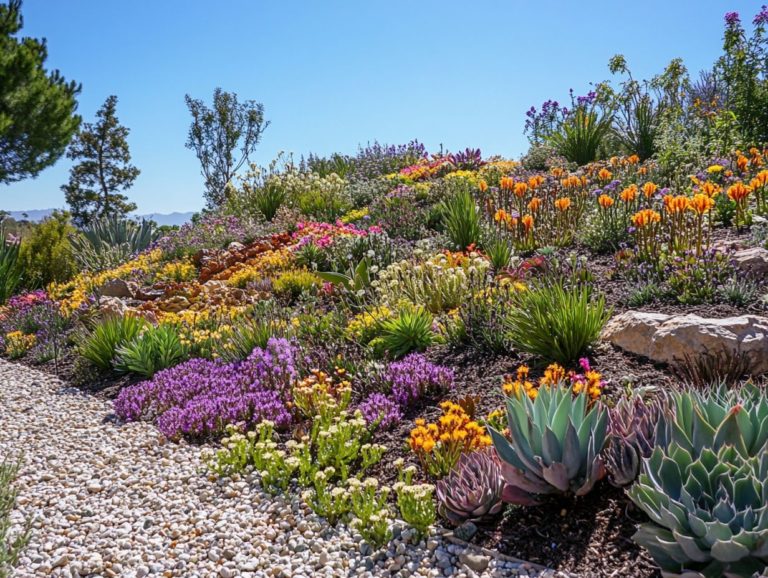How to Monitor Your Water Usage Effectively
Water is one of your most precious resources. You might be surprised at how much you use daily without even realizing it.
Start monitoring your water usage today! You’ll uncover valuable insights into your environmental impact and can potentially save money on your utility bills. This guide offers effective methods for tracking your water consumption, from simple manual logs to cutting-edge smart home technology.
You’ll learn how to interpret your data, pinpoint areas that need improvement, and cultivate sustainable habits that can lead to meaningful change.
Dive into this guide for practical tips on conserving water while contributing to a healthier planet!
Contents
Key Takeaways:
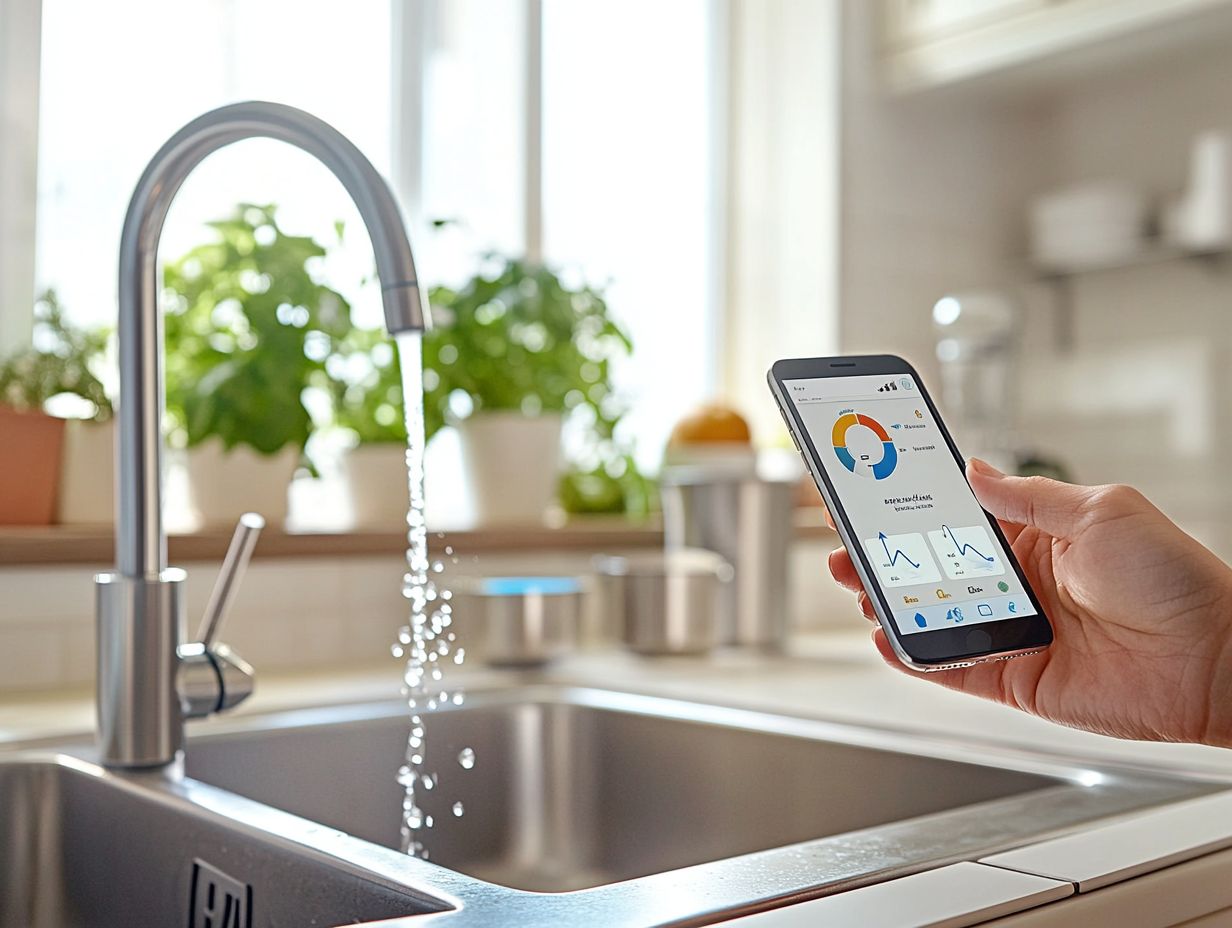
- Monitoring water usage is essential for the environment and your finances.
- Methods include manual tracking and smart home tools.
- Understanding your data helps identify patterns and improve water use.
Why Monitor Your Water Usage?
Monitoring your water usage is crucial for families in Indianapolis who are committed to sustainability and cost savings. It enables you to track your water consumption effectively, spot high water bills, and gain insight into your household’s usage patterns.
With growing concerns about local water stress and environmental impact, being aware of water conservation efforts is essential for managing utility expenses and using less water in your daily life.
Advanced water monitoring devices help you understand water consumption metrics. This knowledge allows you to make informed choices for a sustainable future.
Environmental and Financial Impact
The environmental and financial implications of water usage are significant. Excessive consumption can lead to hefty water bills and increased treatment costs, while insufficient conservation efforts can intensify local water stress.
By embracing more mindful water usage habits, you and your community can ease these pressures considerably. For example, consider upgrading your plumbing fixtures to modern, water-efficient options such as low-flow showerheads and dual-flush toilets. These simple changes can lead to substantial reductions in water use.
Over time, these upgrades not only lower your water bills but also contribute to sustainability by preserving precious natural resources. As the demand on local water supplies decreases, ecosystems flourish, and the overall health of the environment improves.
Use smart irrigation practices and rainwater harvesting systems. These can make a big difference in your water conservation efforts.
Methods for Tracking Water Usage
You have a range of methods for tracking water usage. Manual tracking techniques require diligence and keen attention.
Modern solutions, such as smart home technology devices that automate home functions, making it easier to save water can automate the process. These innovative tools make it significantly easier for you to assess your water consumption metrics with efficiency and precision.
Manual Tracking
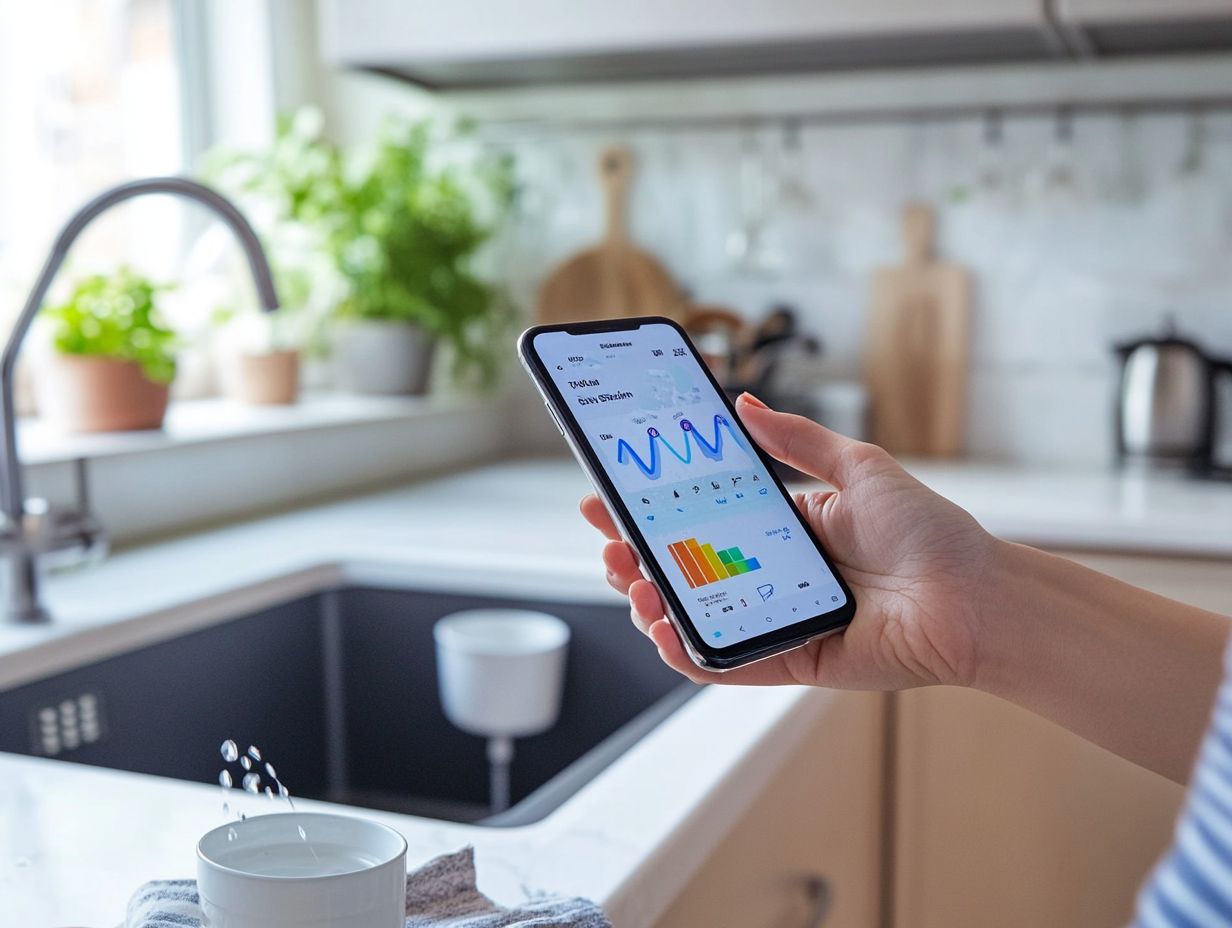
Manual tracking of water usage means you ll record your daily water consumption metrics. Think of it as noting your water intake in gallons used, whether on a daily or weekly basis.
This approach offers a clearer insight into your individual or household water use patterns over time, showcasing peak usage periods and potential areas for reduction.
By systematically logging data like how long you shower, your garden watering schedules, and even your laundry loads you can pinpoint habits that may lead to excessive consumption. Keeping accurate records can be as simple as using a chart or a water tracking app; just ensure you re consistent with your entries.
Regularly reviewing this data can inspire you to make meaningful changes in your behavior, ultimately leading to more sustainable practices. Manual tracking serves as a vital tool for your personal accountability and deepens your understanding of water conservation efforts, highlighting the collective impact of even the smallest adjustments.
Take immediate action towards conserving water! Every small step counts.
Smart Home Technology
Smart home technology has transformed how you approach water conservation. It introduces advanced water monitoring devices and smart water monitors that provide real-time insights into your water usage.
Imagine having automated shutoff valves that prevent leaks no more surprises on your water bill! These innovations heighten your awareness and integrate effortlessly with existing home systems, allowing for smarter management of your daily water consumption.
You can receive alerts on excessive water use right on your smartphone, prompting you to take immediate action. Smart irrigation systems consider weather forecasts and soil moisture levels. This ensures your garden receives just the right amount of water while minimizing waste.
Embrace these technologies now, and watch your water conservation efforts soar! You can make significant strides in your conservation efforts, contributing to a more sustainable future and reducing your utility costs.
Interpreting Your Water Usage Data
Understanding your water usage data is essential for uncovering patterns and identifying areas for improvement.
This analysis provides valuable insights into your water consumption habits and helps identify potential leaks that could silently inflate your bills.
Identifying Patterns and Areas for Improvement
Spotting patterns in your water consumption metrics offers invaluable insights. You can identify periods of excessive use and appreciate the conservation benefits of adopting efficient practices.
By analyzing your daily, weekly, and seasonal usage trends, you can determine when your water consumption peaks, often during activities like lawn irrigation or filling swimming pools.
For example, a study in a suburban community found that households adjusting their watering schedules to early morning hours reduced water usage by up to 30%.
Integrating smart irrigation systems optimizes water delivery to your gardens and minimizes runoff.
By focusing on these patterns, you can significantly contribute to water conservation, reduce costs, and foster a sustainable environment.
Tips for Reducing Water Usage
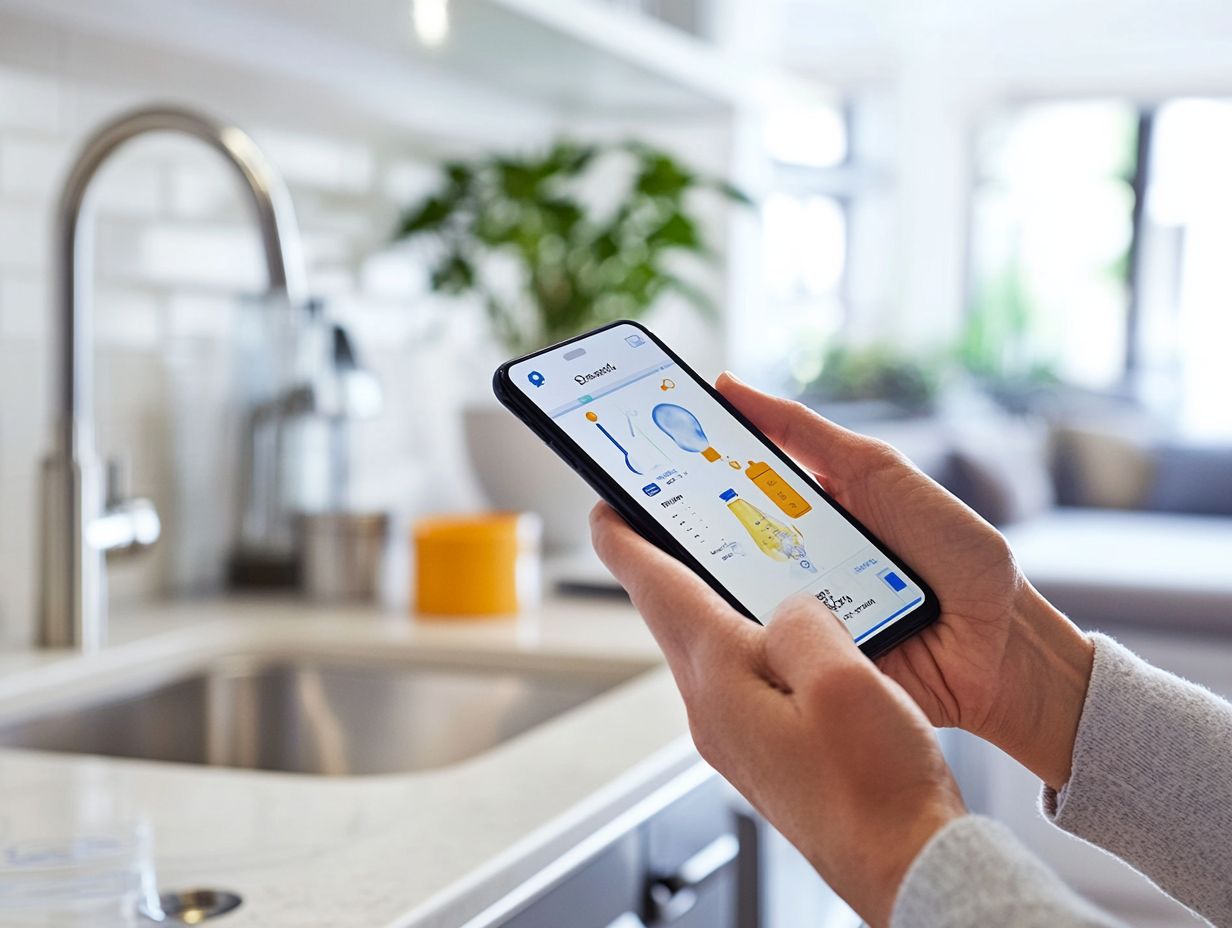
Reducing water usage is not just a responsible decision; it s crucial for managing water demand, particularly in areas experiencing local water stress.
Implement various conservation strategies and embrace water-saving upgrades in your home. You play a vital role in ensuring a sustainable future.
Conservation Strategies
Implementing effective conservation strategies, such as using water-saving products and upgrading plumbing fixtures, can drastically reduce water waste.
By prioritizing water-efficient fixtures, you conserve valuable resources and enjoy reduced utility bills over time.
Simple actions like installing low-flow showerheads, faucet aerators, and dual-flush toilets which have two flush options to save water can lead to significant savings without compromising comfort or convenience.
Choosing environmentally friendly products made from sustainable materials and equipped with energy-efficient technologies contributes to a healthier ecosystem. These decisions cultivate a culture of sustainability in your home and inspire others in your community to embrace similar practices, creating a collective positive impact on our planet’s precious water resources.
Incorporating Sustainable Habits
Incorporating sustainable habits into your daily routine is crucial for achieving lasting solutions to reduce water consumption.
These practices enhance your awareness of water-related risks and foster a profound sense of responsibility toward your community’s water resources.
Long-Term Solutions for Reducing Water Consumption
Long-term solutions for reducing water consumption require a comprehensive approach. This includes evaluating your plumbing system and collaborating with water utility providers to enhance overall conservation efforts.
These partnerships can pave the way for innovative strategies that not only meet immediate water demands but also promote sustainable habits crucial for future resilience.
By actively engaging with local utilities, you can gain valuable insights into water usage patterns. This leads to more efficient system upgrades and effective leak detection initiatives.
Incorporating techniques like rainwater harvesting, xeriscaping, and the use of native plants can drastically reduce your environmental impact while nurturing a culture of conservation.
Emphasizing education and outreach programs is essential. This helps residents adopt water-saving behaviors that lead to impressive results.
Frequently Asked Questions
What is the importance of monitoring water usage?
Monitoring water usage is crucial in conserving water and reducing your utility bills. It also helps to identify any potential leaks or water wastage in your household.
How can I track my daily water usage?
One effective way to track your daily water usage is by installing a water meter. This device can measure the exact amount of water used and give you a better understanding of your water consumption.
What are some tips for reducing water usage?
Some tips for reducing water usage include:
- Fixing any leaks.
- Taking shorter showers.
- Using a broom instead of a hose to clean outdoor areas.
- Turning off the tap while brushing your teeth.
These simple changes can lead to significant savings over time.
Can I use technology to monitor my water usage?
Yes, there are several smart water monitoring systems available that can track your water usage in real-time. These systems provide insights on how to conserve water and some even have mobile apps for convenient tracking.
How often should I check my water meter?
It is recommended to check your water meter at least once a month to monitor your usage and catch any potential leaks early on. Additionally, you can also check it before and after a period of heavy water usage, such as after a family gathering or a weekend of watering the lawn.
What should I do if I notice a sudden increase in my water usage?
If you notice a sudden increase in your water usage, it could be a sign of a leak. It is important to investigate and fix any leaks immediately to avoid wasting water and increasing your utility bills. You can also contact a professional plumber for assistance.
Start monitoring your water usage today and explore more ways to conserve water in your home!

